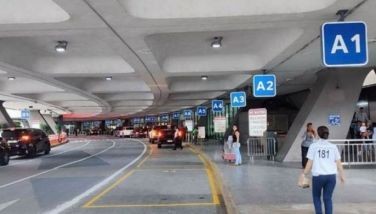Poverty incidence eases to 24.9%
MANILA, Philippines - Fishermen and farmers remained the poorest among the nine basic sectors in the Philippines with poverty incidence at 39.2 percent and 38.3 percent respectively in 2012, data released by the Philippine Statistics Authority (PSA) showed.
In fact, five of the nine basic sectors (fishermen, farmers, children, self-employed, unpaid family workers and women), have higher poverty incidence than the general population estimated at 25.2 percent in 2012.
The four other basic sectors are migrant and formal sector, senior citizens, individuals residing in urban areas, and the youth.
As far back as 2006, fishermen and farmers remained the poorest, PSA data showed.
But in its first six months 2013, the poverty incidence was estimated at 24.9 percent, slightly better than the 27.9 percent in 2012.
On the other hand, subsistence incidence among Filipinos, or the proportion of Filipinos whose income is below the food threshold, was estimated at 10.7 percent in the first semester of 2013, lower than the 13.4 percent estimate in the first half of 2012. Subsistence incidence among Filipinos is often referred to as the proportion of Filipinos in extreme or subsistence poverty.
The PSA said a family of five needs at least P5,590 on the average every month to meet the family’s basic food needs, and at least P8,022 on the average every month to meet both basic food and non-food needs.
These amounts represent the monthly food threshold and monthly poverty threshold, respectively. They indicate increases of about 2.4 percent in food threshold and 2.6 percent in poverty threshold from the first semester of 2012 to the first semester of 2013.
Food threshold is the minimum income required to meet basic food needs and satisfy the nutritional requirements set by the Food and Nutrition Research Institute (FNRI) to ensure that one remains economically and socially productive. It is used to measure extreme or subsistence poverty.
Poverty threshold is a similar concept, expanded to include basic non-food needs, such as clothing, housing, transportation, health, and education expenses.
Other poverty measures include the income gap, which measures the amount of income required by the poor in order to get out of poverty in relation to the poverty threshold itself, was estimated at 26.2 percent.
The PSA estimates that if the government were to provide a mere cash transfer to all poor households in terms of what they would require to cross the poverty line, a total of P124 billion in 2012 would be required to eradicate poverty (exclusive of targeting costs).
- Latest
- Trending





























